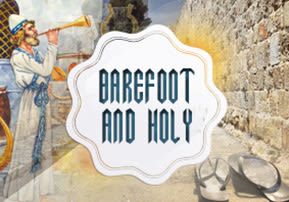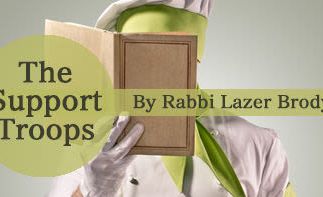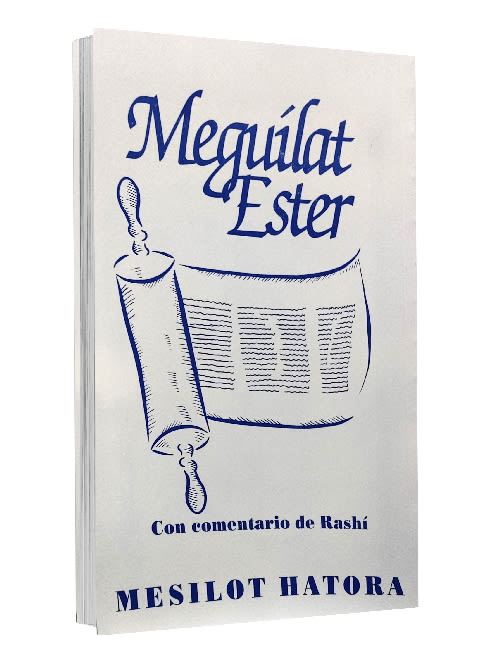
Kedoshim: Barefoot and Holy
The Kohanim and the People of Israel are required to go barefoot on the Temple Mount and in the Holy Temple; is this respectful?

"and My Sanctuary shall you revere…" (Leviticus 19:30).
In elaborating on our passage at hand, Rashi says, "One shall not enter the Temple Mount with his walking stick, or with shoes, or with his money belt, or with the dust on his feet." According to Halacha, a person must enter the Temple Mount with clean bare feet. Apparently, this is to show reverence to the Holy Temple. But, with Hashem's illuminating our eyes, there's a much deeper reason why we go barefoot in the Holy Temple.
If every Jew is required to go barefoot in the Holy Temple, then the Kohanim certainly must, for they are performing the holy tasks of Divine service. This too is Halacha (see tractate Zevachim 24a and Rambam, Hilchot Biat Hamikdash 5:17), for "There shall not be any interposition between him [the Kohen, or priest] and the floor [of the Holy Temple]". Since the floor of the Holy Temple has a special sanctity, and the Kohen is required to remain within the perimeter of holiness, then his feet – his own flesh – must be in contact with the floor at all times with nothing separating in between.
It's no surprise, therefore, that Hashem says to Joshua, "I shall give you every place where the soles of your feet have stepped (Joshua 1:3). The language of this passage sounds redundant, for Hashem could have said, "I shall give you every place where you have stepped," for it's clear that the feet are stepping and not the  hands or the head. My heart tells me that the secret of the Land of Israel is concealed here, the same principle that requires the Kohanim and the People of Israel to go barefoot in the Holy Temple. Hashem emphasizes to Joshua, every place where the soles of your feet have stepped, to convey that simply entering the Land of Israel with your body and without the intent of maintaining constant contact with its holiness not only will not be beneficial, but even dangerous. But, if your intent is to keep constant contact with holiness – to learn Torah and to observe the commandments on the holy soil of Israel, with nothing separating in between – you shall resemble a priest in the Holy Temple and you shall merit the Land of Israel for posterity.
hands or the head. My heart tells me that the secret of the Land of Israel is concealed here, the same principle that requires the Kohanim and the People of Israel to go barefoot in the Holy Temple. Hashem emphasizes to Joshua, every place where the soles of your feet have stepped, to convey that simply entering the Land of Israel with your body and without the intent of maintaining constant contact with its holiness not only will not be beneficial, but even dangerous. But, if your intent is to keep constant contact with holiness – to learn Torah and to observe the commandments on the holy soil of Israel, with nothing separating in between – you shall resemble a priest in the Holy Temple and you shall merit the Land of Israel for posterity.
The Torah doesn't mince words. The Land of Israel resembles the King's daughter, very refined and delicate. If she's fed anything that is not pure, she regurgitates it. Accordingly, Hashem warns the Jewish People to live lives of holiness in the Holy Land, so that "the land will not regurgitate you" (Leviticus 18:28). Those who violate the Torah and live unholy lives cannot look forward to future of security and prosperity in the Land of Israel.
Interestingly, the Gemara doesn't consider the blood of sacrifices on the floor of the Holy Temple as interposition – chatzitza – between the Kohen and the floor of the Holy Temple. In fact, the Gemara says that "it is the praise of the sons of Aaron [the Kohanim] who walk up to their ankles in blood. We also might wonder, why is all this blood not considered irreverence to the Holy Temple?
"Blood" alludes to the soul, for "the blood is the soul" (Deuteronomy 12:28). The Hebrew expression for doing something in total dedication is mesirut nefesh, "giving of the soul", when a person does something with such dedication that he's willing to give body and soul, all of his blood, to attain his goal. This is the way Hashem wants us to take hold of the Land of Israel – to be up to our ankles with dedication.
The Land of Israel is tangible sanctity, for it is sanctified above all other lands (see Mishna, Kelim 1:6). As in the Temple where one must walk barefoot to maintain contact with the holy floor, in the Land of Israel, one must maintain constant contact with its special holiness. We can now understand the timeless message of "and My Sanctuary shall you revere…", for by observing and learning our holy Torah on our holy land, with no interruption and nothing standing between us and holiness, we conquer the land for posterity, amen!







4/24/2014
Love that knows no barriers "Those who violate the Torah and live unholy lives cannot look forward to future of security and prosperity in the Land of Israel." http://www.chabad.org/therebbe/livingtorah/player_cdo/aid/818267/jewish/Love-that-Knows-No-Barriers.htm
4/24/2014
"Those who violate the Torah and live unholy lives cannot look forward to future of security and prosperity in the Land of Israel." http://www.chabad.org/therebbe/livingtorah/player_cdo/aid/818267/jewish/Love-that-Knows-No-Barriers.htm
4/24/2014
Beautiful article. Beautiful article Rabbi Brody. B"H.